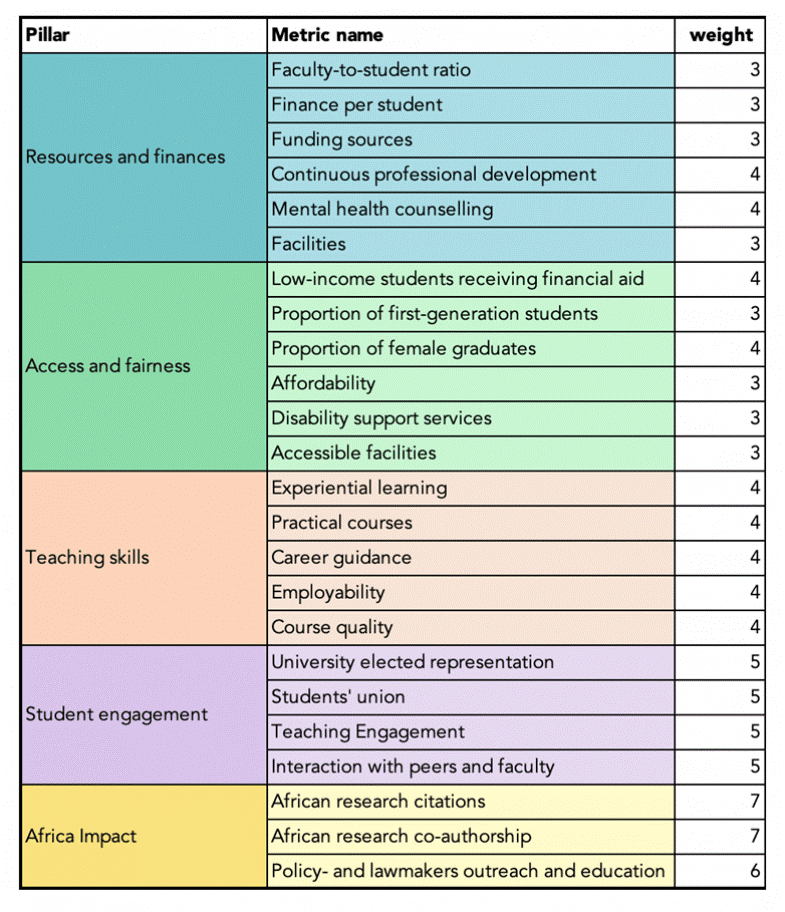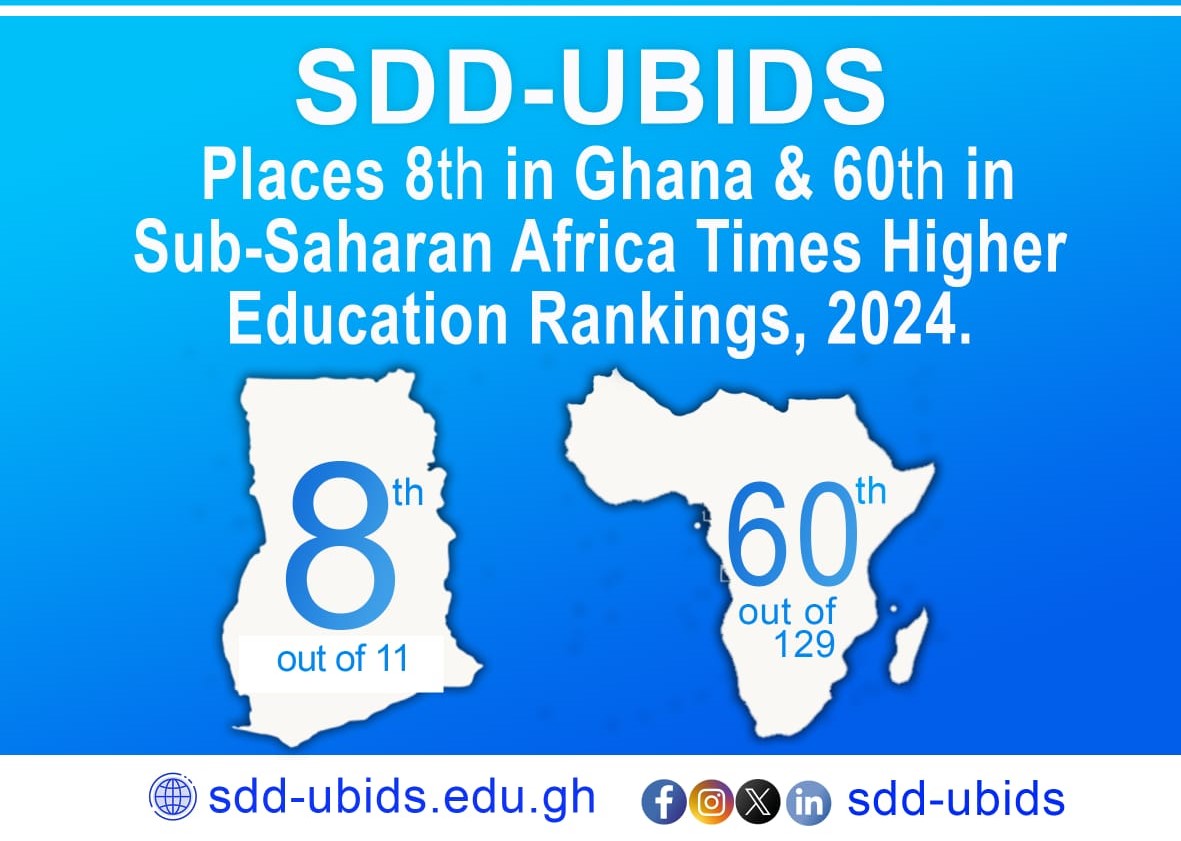The Simon Diedong Dombo University of Business and Integrated Development Studies (SDD-UBIDS) makes its inaugural entry into the prestigious Times Higher Education (THE) Sub-Saharan Africa University Rankings, 2024. Initiated by the Directorate of Research, Innovation and Consultancy (DRIC) led by Prof. Frederick Dayour, the University entered the competition with 129 universities across 20 countries in Sub-Saharan Africa, securing the 60th position out of 129 universities in Sub-Saharan Africa and ranked 8th among 11 universities in Ghana that entered the rankings.
The Sub-Saharan Africa University Rankings 2024 use carefully calibrated indicators to provide comprehensive and balanced comparisons across three vital areas: teaching, research and societal impact. The methodology has 20 metrics, which are grouped into five pillars: resources and finance; access and fairness; student engagement; ethical leadership; and Africa impact.
The Times Higher Education Sub-Saharan Africa University Rankings were developed specifically to address the challenges faced by higher education institutions in sub-Saharan Africa (SSA). The methodology for the rankings was developed by THE’s data team, in consultation with university leaders across Sub-Saharan Africa, under a project initiated by a consortium of African and international higher education organisations in partnership with the Mastercard Foundation.
Why is Making the Times Higher Education Rankings List Important for SDD-UBIDS?
1. Ranking by THE establishes SDD-UBIDS as a credible institution globally, boosting its prestige and recognition in academic and professional circles.
2. Rankings highlight the university’s strengths in teaching, research, and impact, reinforcing its value to students, staff, and society.
3. The rankings make the university more appealing to international students seeking quality education, thereby increasing diversity and revenue.
4. Governments, industries, and grant-giving bodies are more likely to invest in institutions with strong rankings due to perceived reliability and quality.
5. Ranked universities are more likely to get opportunities to form strategic alliances with global institutions, industries, and organisations for research, student exchanges, and innovation.
6. Rankings serve as a key factor for prospective students in choosing a university, particularly for those looking at international or out-of-region options.
7. Alumni of ranked institutions are more likely to take pride in their alma mater, often increasing their willingness to recommend it to others.
8. A Times Higher Education ranking provides a powerful marketing tool for promoting the university to stakeholders, both locally and globally.
The ranking follows a hybrid methodology to account for the diverse strengths of the sector; unlike our other rankings which tend to focus on one mission, it covers elements of teaching, impact and research.
The overall methodology explores five key areas, which we call pillars.



